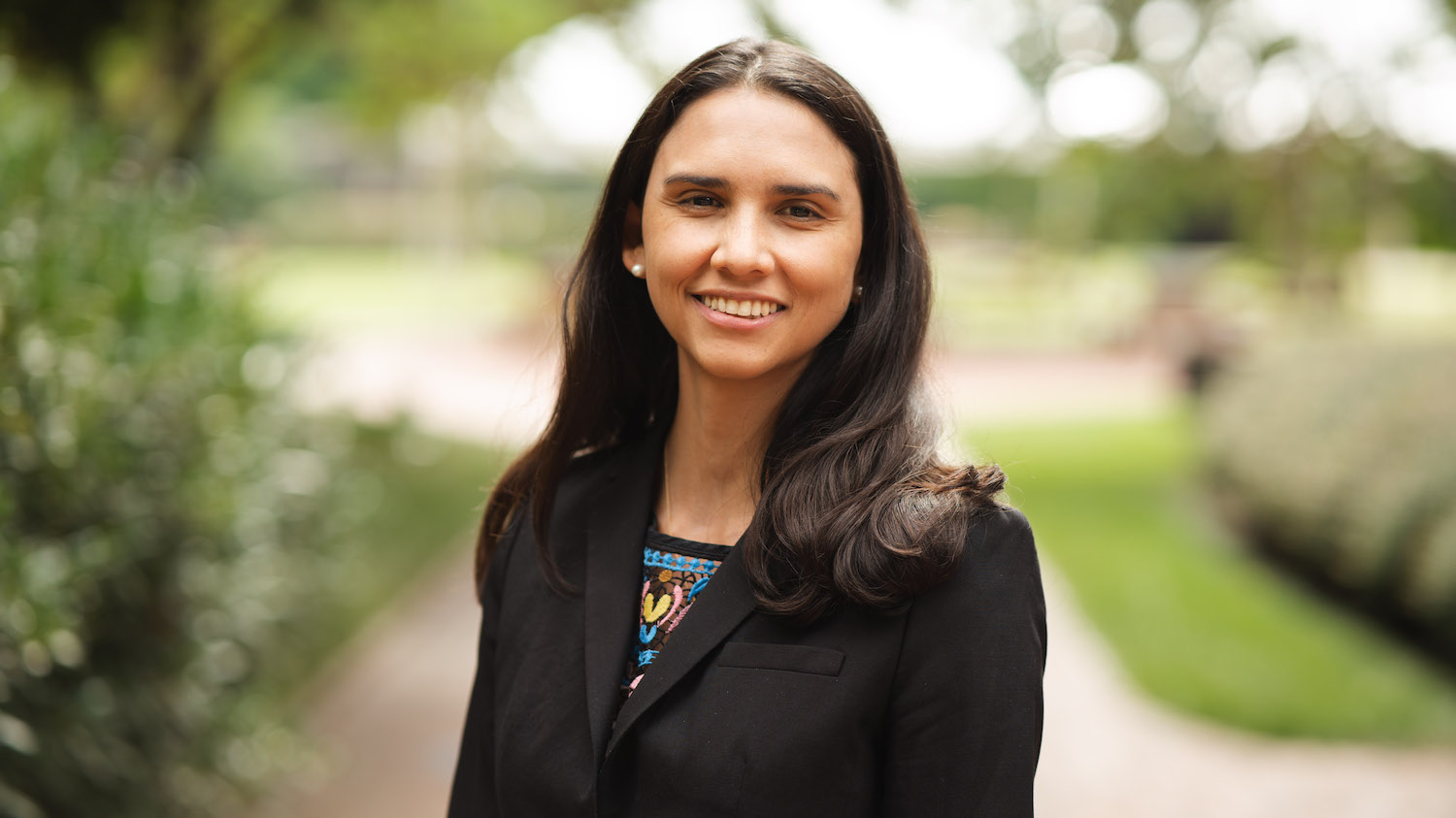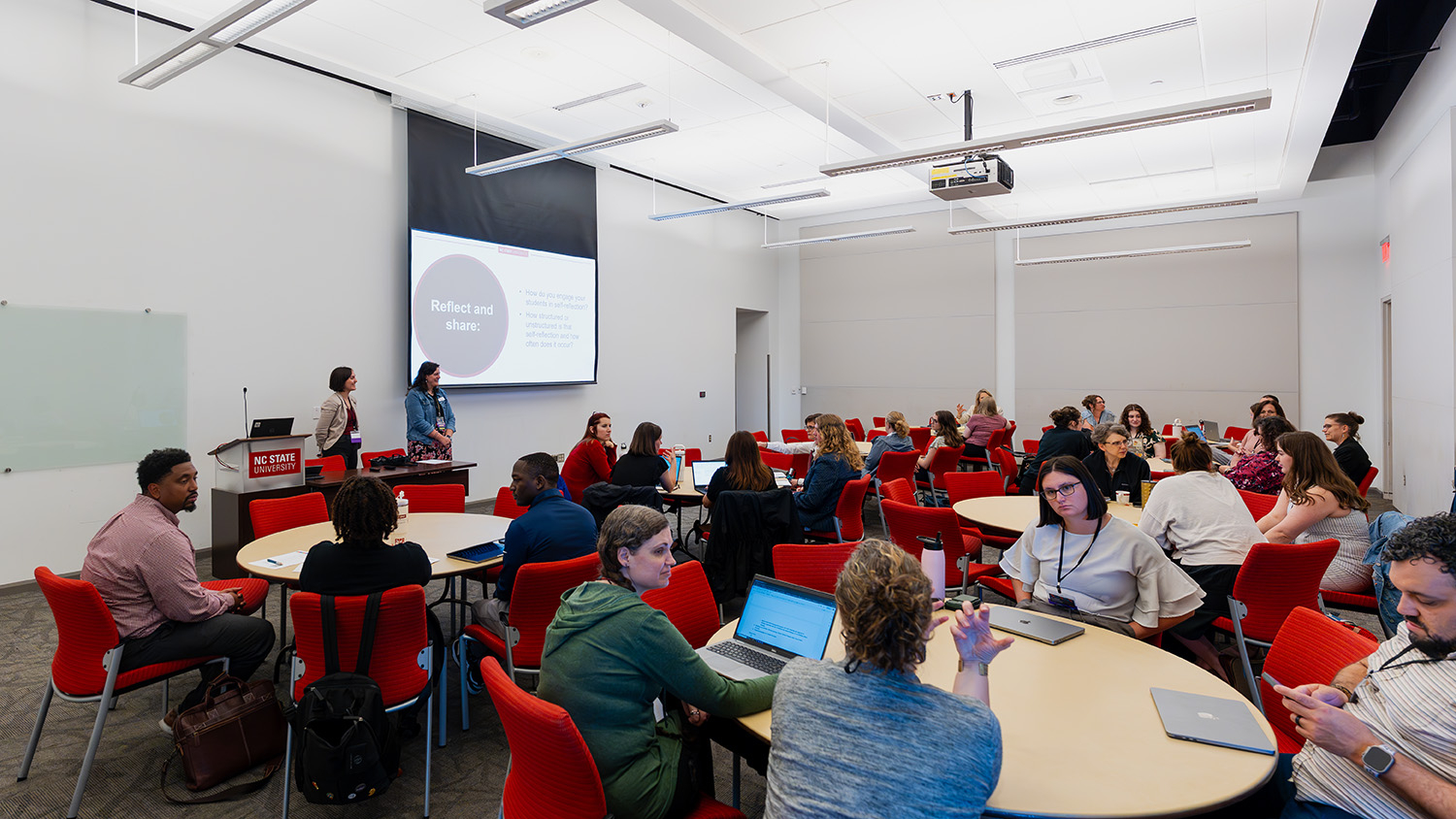Adriana Corredor-Waldron has always had a heart for people at the margins of society. In her new role as assistant professor of microeconomics at the Poole College of Management, she will continue to turn her economic lens on health policies that impact the medically disadvantaged while helping students discover their own passions at the intersection of healthcare and economics in her ECG 590 class.
Q&A with Adriana Corredor-Waldron
What sparked your initial interest in economics?
I pursued an undergraduate degree in economics at Universidad de los Andes in Bogota, Colombia, my hometown, because I was intrigued by the ways in which economics impacts everyday life. I have always had an interest in social sciences, with a particular interest in statistical analysis, and I also appreciated how economics provided tools to analyze policy issues.
“I have always had an interest in social sciences, with a particular interest in statistical analysis, and I also appreciated how economics provided tools to analyze policy issues.”
How did you decide to focus on topics related to health policy? What were some of your earliest research topics?
As a doctoral student at the University of Illinois Urbana-Champaign (UIUC), I went in thinking I would study the economics of developing countries. I changed direction when I took a course on labor economics that touched briefly on the U.S. healthcare market. I found that I really enjoyed examining topics related to Medicaid because of how it impacts the low-income population. The more I read about the difficulties people face in accessing healthcare services, the more I was drawn in.
My dissertation explored how Medicare payments affect the willingness of nursing homes to accept Medicaid beneficiaries. What I found was that when Medicare increases its fees, nursing homes that are operating near capacity start decreasing the number of Medicaid patients they accept. I also co-authored a paper on the relationship between suicides, mortality, and prescription drug monitoring programs, a research direction I continued as a postdoctoral associate at Princeton University. That project sparked my interest in research related to the ongoing opioid epidemic.
Why did you decide to study health policy within academia?
I love the freedom afforded by an academic institution like NC State. I have far more flexibility in the research projects I can pursue than I would in other environments. I also have more time to investigate problems in depth. Sometimes projects can take years, but you learn a lot along the way.
What is the most rewarding aspect of teaching?
“The best part of being a teacher is seeing students’ evolution over time. I watch them become more curious, more thoughtful, and more comfortable in front of a class.”
The best part of being a teacher is seeing students’ evolution over time. I watch them become more curious, more thoughtful, and more comfortable in front of a class. I’m currently teaching Health Economics & Policy, and it’s rewarding to train students to think about problems in healthcare like an economist.
What are some topics in health policy that are ripe for more research?
I have an entire folder full of ideas! There are so many unanswered questions. One problem I am currently looking at is why Black mothers end up getting more C-sections, regardless of risk factors. We also need more research on topics like caring for people with disabilities in a community setting and preventing people with mental health conditions from ending up in prison.
What advice would you give to students looking to build a career at the intersection of economics and healthcare?
First, stay up to date on current events. Read as many news stories as you can related to healthcare—that’s an excellent way to understand what we are debating nowadays. Second, focus on building data analytics skills. The market highly values data training, so even if you don’t plan to enter academia, you will need to be comfortable with machine learning algorithms, artificial intelligence, and other analytical tools.
What do you like to do in your spare time?
I really enjoy hiking. Fortunately, North Carolina is the perfect place to hike! I also enjoy salsa dancing and traveling. I try to make it back to Colombia at least once a year.
- Categories:



